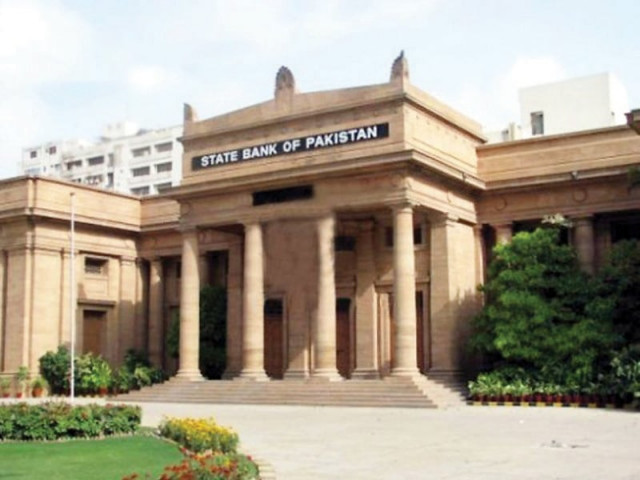Central bank independence: consequences for economy
SBP has enough autonomy as compared with many other central banks including in India and Malaysia

The federal cabinet has approved the SBP Amendment Bill 2021 without a debate. The bill has been placed in parliament for approval and seeks absolute autonomy for the State Bank of Pakistan (SBP) under the International Monetary Fund (IMF) loan conditions.
There has been a heated debate on giving further autonomy to the SBP since it has been seen as an attempt to hand over financial control of the country from the government of Pakistan to the IMF.
In this context, it would be important to examine policy repercussions of the amendments and their consequences for economic sovereignty and national economic, strategic and defence objectives.
As per the amendments, the central bank’s primary objective will be domestic price stability, whereas supporting economic policies will be considered as a tertiary objective.
International evidence shows that this objective is suitable for developed countries whereas it does not suit a developing country like Pakistan where growth of the economy is a primary condition for growth of income and employment for millions of people, in particular the millions of unemployed youth entering the labour force.
Objectives of the monetary policy in Pakistan are to secure monetary stability and assist the full utilisation of productive resources by channelling credit to the productive and priority sectors and discouraging its allocation to the non-essential and less-desirable sectors.
For achieving these objectives, the Monetary and Fiscal Policies Coordination Board (MFPCB) was established in 1994 to maintain coordination between the SBP and the federal government on fiscal, monetary and exchange rate policies.
Under the amendments, the role of existing MFPCB, which has greater participation of stakeholders, has been abolished and replaced by the SBP governor and finance minister, leading to concentration of power for monetary policy decision-making between the two high-ups.
Absolute autonomy for the central bank can lead to the adoption of a misleading policy option to achieve price stability by maintaining an unrealistically high policy rate that can cause losses to the nation.
Evidence supports that inflation in developing countries like Pakistan is a supply-side phenomenon mainly due to shortage of food and hoarding of commodities, currency depreciation and increase in electricity and gas prices.
On the contrary, the monetary policy decisions made in the recent past show that in pursuit of hot money, the SBP kept the policy rate very high at 13.25%, which led to a low gross domestic product (GDP) growth rate with unprecedentedly high unemployment and high interest payments on debt at Rs2,847 billion in 2019-20.
This policy has left insufficient financial resources and resulted in further borrowing for development and defence needs of the country.
Thus, to safeguard national interests, the interest rate setting and monetary policy determination by the SBP should be consistent with the existing objective “to secure monetary stability with fuller utilisation of country’s productive resources”.
The amendments suggest no rollover of public debt by the government, which implies that if the government is unable to meet its revenue targets, it will have to borrow at higher rates from commercial banks to repay debt, leaving less credit for the private sector for economic growth and increasing debt servicing cost further, which will be met through higher taxes on the people.
While we strictly emphasise selfdiscipline for the government, this option should be available to the government in times of distress.
Many countries in the world have exercised this option in Covid-19. After the amendments, the ability of the government to borrow for providing salaries and pensions to government employees, including the armed forces, can be blocked by the SBP governor or its board. So, in effect, the SBP governor will be running the government’s entire financial decision-making, whereas the government will be powerless.
Relief for banks in distress The amendments also prohibit the government from providing guarantees for short-term relief to commercial banks facing financial distress, which can lead to the collapse of domestic banks and their replacement by foreign banks.
This is clearly in conflict with the requirement to meet the country’s industrial, strategic and defence needs as well as finance expenditures under the China-Pakistan Economic Corridor (CPEC).
According to the amendments, the SBP governor will be the chairman of the SBP board, which is in conflict with the central bank’s own corporate governance regulations that restrict presidents of commercial banks from chairing their boards.
Furthermore, the SBP board will determine the salary and benefits for the governor. This is a clear-cut case of conflict of interest, often cited by the prime minister. With the likelihood of hefty salary packages for the SBP management, no performance indicators have been suggested to evaluate the performance of the governor and deputy governors.
No accountability will be undertaken for lack of performance.
The SBP governor and management will not be answerable to the president, prime minister and the cabinet or parliament. The amendments provide immunity to the SBP governor and management from any FIA and NAB probe.
This proposed immunity is above the law and is not even available to the prime minister. This clause will undermine the authority of the State Bank for accountability of its management.
The SBP governor’s tenure will be extended from three to five years and he can be re-appointed for another five years. This change should be deferred.
To sum up, the SBP has enough autonomy as compared with many other central banks including in India, Malaysia, Thailand and Brazil. There is a need to increase parliamentary oversight and accountability of both the SBP and the federal government to achieve financial stability and discipline.
THE WRITER IS A PHD IN ECONOMICS FROM SUSSEX UNIVERSITY, UK AND HAS MSC IN QUANTITATIVE DEVELOPMENT ECONOMICS FROM THE UNIVERSITY OF WARWICK, COVENTRY, UK



















COMMENTS
Comments are moderated and generally will be posted if they are on-topic and not abusive.
For more information, please see our Comments FAQ